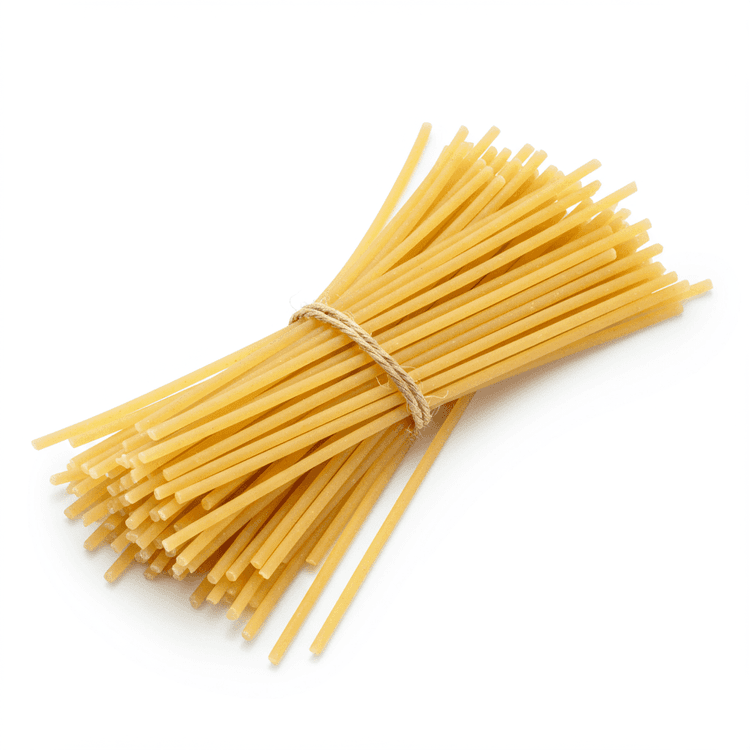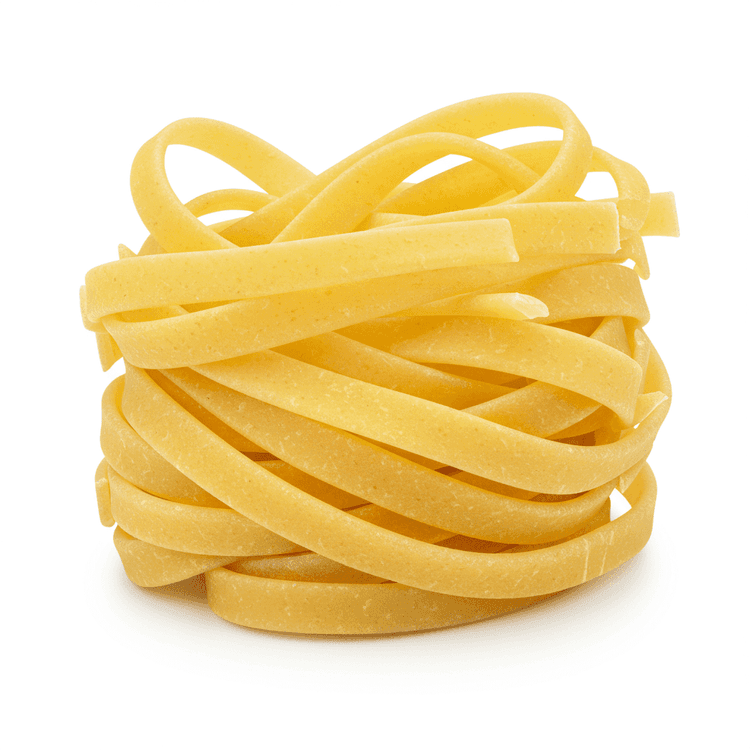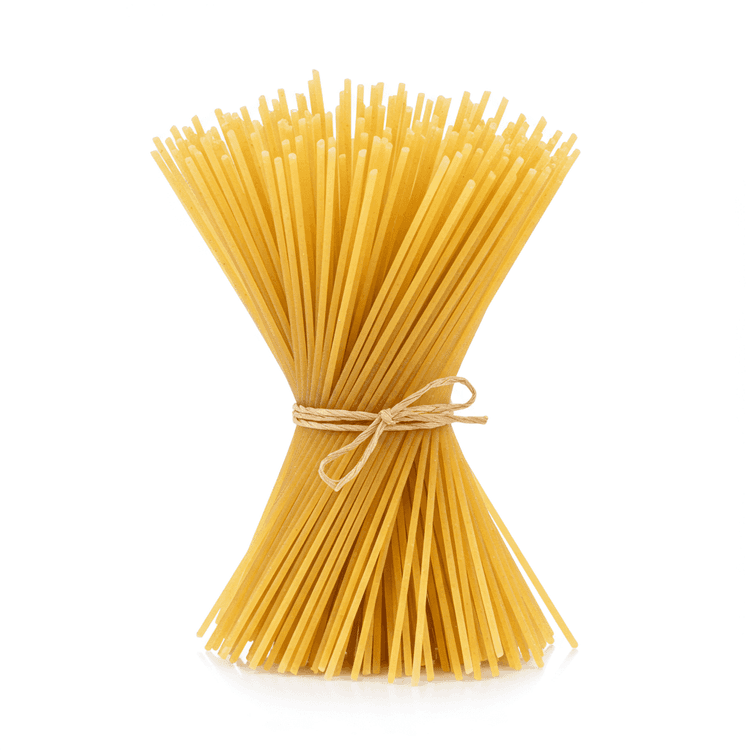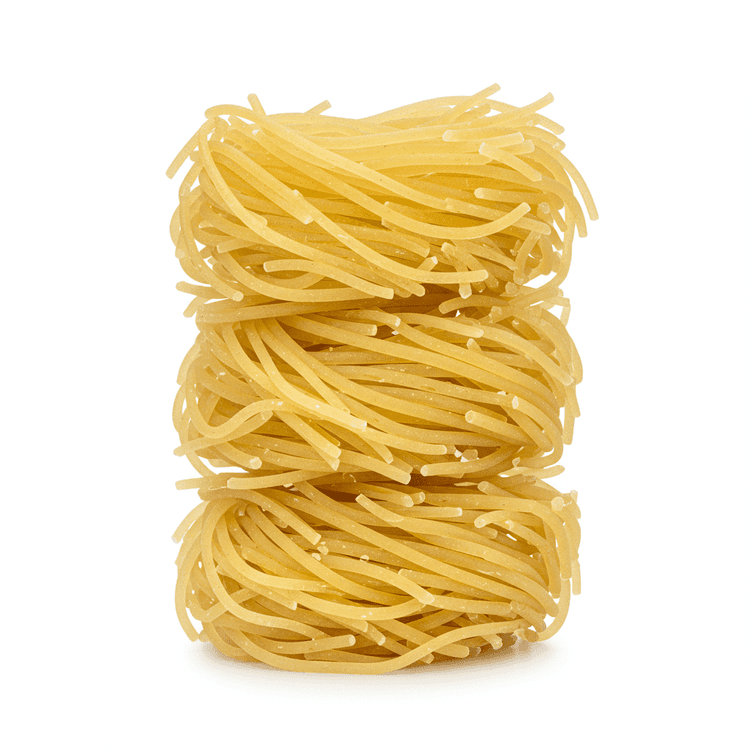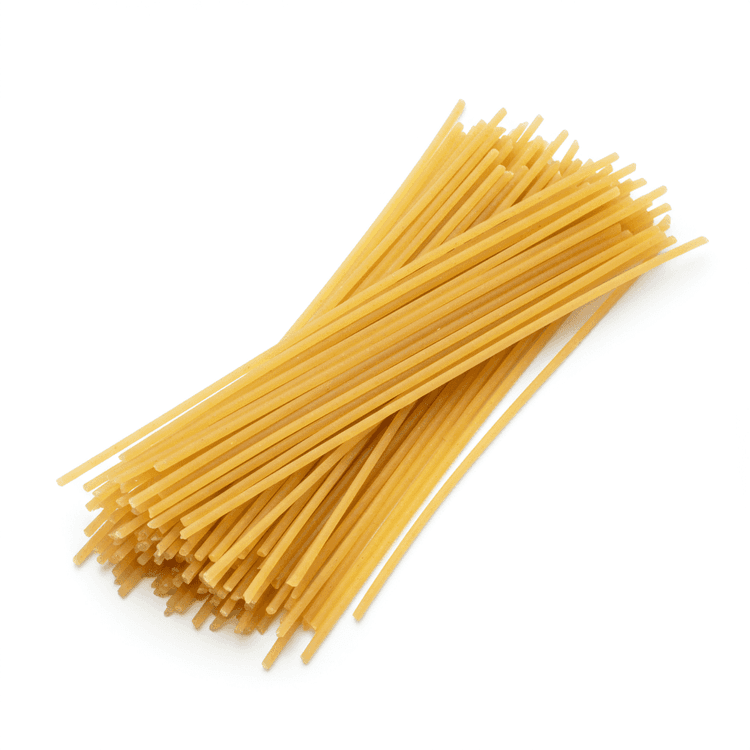
Spaghettini
Spaghettini, a thinner version of spaghetti, is a long, cylindrical pasta with a delicate texture. It cooks quickly and has a smooth, slightly firm bite when al dente. Its slender shape makes it ideal for lighter sauces, allowing the pasta to be the star while still complementing the flavors. Spaghettini typically appears a pale golden color, though whole wheat variations are darker. Many home cooks and chefs alike enjoy the versatility that spaghettini offers in a wide array of pasta dishes.
Common Uses
- Spaghettini is frequently used in light pasta dishes with olive oil-based sauces, such as aglio e olio, where its delicate texture perfectly absorbs the infused flavors of garlic and chili flakes.
- It is also a good choice for seafood pasta dishes, pairing well with shrimp, clams, or mussels in a white wine sauce, highlighting the flavors of the sea without being too heavy.
- Spaghettini can be served with simple tomato-based sauces, providing a quicker and more refined alternative to spaghetti with marinara.
- Many enjoy spaghettini in Asian-inspired noodle dishes, stir-fried with vegetables, proteins and a soy-based sauce or used in a flavorful broth-based noodle soup.
- Use spaghettini as a base for cold pasta salads, combining it with fresh vegetables, herbs, and a light vinaigrette dressing for a refreshing and flavorful side dish.
- Some pasta enthusiasts utilize spaghettini in baked pasta dishes, but its delicate nature means it must be pre-cooked properly to avoid over cooking in the oven with cheese and sauce.
Health Benefits
- Excellent source of carbohydrates for energy
- Provides dietary fiber, promoting digestive health
- Low in fat and cholesterol when consumed without rich sauces
- Can be part of a balanced diet for weight management
- Enriched varieties contain essential vitamins and minerals like iron and B vitamins
Substitutes
Chefadora AI is here.
Experience smarter, stress-free cooking.
Storage Tips
Store uncooked spaghettini in a cool, dry place like a pantry or cupboard. Ensure the package is tightly sealed to prevent moisture absorption and insect infestation. Properly stored, dried spaghettini can last for 1-2 years beyond the "best by" date. Cooked spaghettini should be refrigerated in an airtight container and consumed within 3-5 days.
Marnirni-apinthi Building, Lot Fourteen,
North Terrace, Adelaide, South Australia, 5000
Australia
